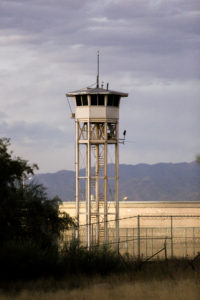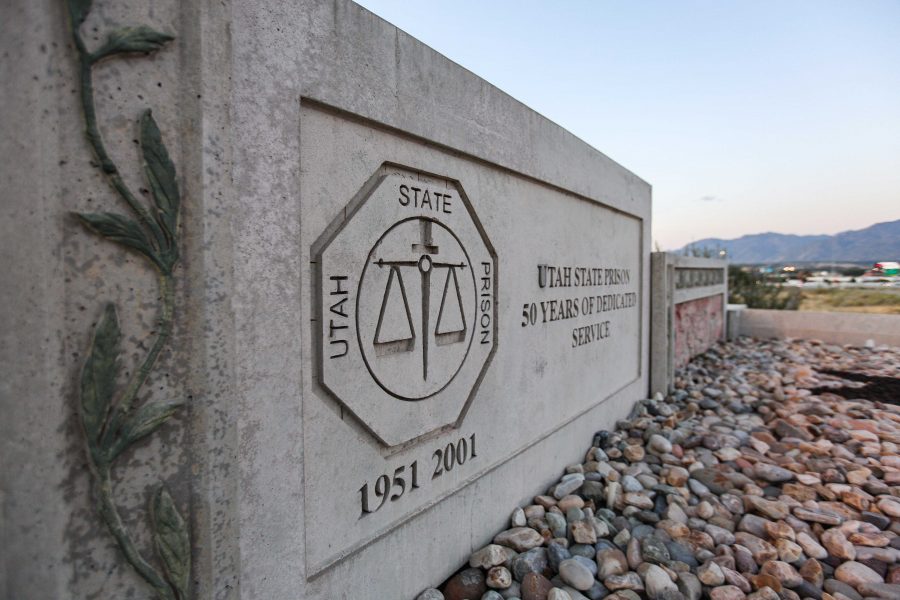In 2002, the “boogeyman” entered a Salt Lake home at night and took a teenage girl from her bedroom. The response to the kidnapping from the seemingly quiet community was deafening. People wore holes into the soles of their shoes searching for the girl and holes in their souls worrying the “boogeyman” would come back. The mantra “bring Elizabeth home” was spoken on the nightly news and repeated in nightly prayers. Then, after nine months, their pleas were answered. On March 12, 2003, Elizabeth Smart came home and the “boogeymen,” Brian David Mitchell and Wanda Barzee, were arrested. The reunion of Elizabeth with her parents replaced communal fear with hope.

It has been over 15 years since Elizabeth Smart was rescued. In subsequent years, she has graduated from BYU in harp performance, served an LDS mission in Paris, wrote best-selling books and started her own family. She is still approached by strangers who whisper, “We just want you to know that we prayed for you.” Her story and ordeal were shared in some small part by those who searched in the Utah wilderness for her and prayed for her safe return. It marked the community.
Unable to lead a completely private life due to the high-profile nature of her kidnapping, Smart has leveraged her visibility to advocate for other abducted and endangered children. She has worked to pass legislation to prevent abductions and contributed to the Department of Justice’s abduction survivors guide. Smart’s kidnapping has also continued to impact her life in more distressing ways. She has dealt with a nation’s morbid curiosity and conspiracy theories, had to relive her captivity on many different occasions while testifying in court and now, on September 19, 2018, one of her captors, Wanda Barzee, was discharged from prison under federal supervision. The release of Barzee doesn’t only impact Elizabeth Smart, however. It may also take every Utahn back to the fear of June 2002. One of Utah’s “boogeymen” has just been invited back into our closets.
After denying Wanda Barzee parole in June of this year for refusing to cooperate with release conditions, the Utah Board of Pardons and Parole issued a statement on September 11th which read, “The Board of Pardons and Parole does not have the legal authority to hold Ms. Barzee beyond September 19, 2018.” The Board was unaware that a judge granted Barzee concurrent federal and state prison sentences for her cooperation in the federal prosecution of Brian David Mitchell, forcing her release to occur this month instead of in 2024.

In the transcripts from Brian David Mitchell’s federal trial in 2010, Wanda Barzee sounds like a victim. She talks about her abusive first husband, her courtship with Mitchell and their “hellish” first year of marriage. She cries multiple times throughout her testimony, recounting Mitchell’s indiscretions and her ostracization from her own family, but near the end of the prosecution’s examination, she reveals herself to be an abuser too. When asked about Mitchell’s decision to kidnap Smart, Barzee referred to her as “our first wife,” showing Barzee’s ownership in Smart’s abuse. Barzee is not a victim. She wasn’t only complicit in the daily rape of a captive teenage girl, but she also encouraged and participated in the girl’s abuse. In a press conference responding to Barzee’s release, Smart said: “There were times when, yes, absolutely, she was manipulated by Mitchell. But she in her own right abused me as much as he did.”
Barzee was not rehabilitated while serving her sentence in federal and state prisons. She has refused mental health evaluations which, according to the Treatment Advocacy Center, is often an indicator of paranoia and a lack of self-awareness. Elizabeth Smart claims a reliable source within the Utah State Prison told her Barzee continues to carry and read from the Book of Immanuel David Isaiah, a book written by Mitchell that includes the “revelation” and “commandment” for him to kidnap Smart and other young girls. Barzee has been described as a “psychotic menace” and her own family is unwilling to take her in after her release. Her state of remorse and rehabilitation does not have any effect on the State’s right to continue to hold her after the 19th.

Barzee was 56 when she was arrested in 2003. She is now 72 and may no longer have the physical strength to abduct and restrain another person. She has also been outed as an abuser: she is a registered sex offender, she’ll be under federal supervision and many know her name and offense. It is likely impossible for Barzee to commit the same crimes for which she currently serves. Yet, this does not make her benign.
After Mitchell’s conviction, Don Herrin, a social psychologist and University of Utah professor, told the Deseret News a lingering societal fear caused by Smart’s abduction was likely, “Because the honest reality is we’re always vulnerable. We’re all at risk. We find ways to try and limit our constant thinking of that, but it’s what makes you cautious.” With the sudden release of Barzee, our illusion of safety has again been cracked and our feelings of constant vulnerability have intensified. Neither the Smarts nor the general community have been given adequate time to process and prepare for Barzee’s release.
Since she was rescued, Elizabeth Smart’s abductors have been held in police custody. With Barzee’s impending release, Smart has admitted she is nervous for her own safety and that of her two young children. Smart is also especially vulnerable now as she is currently pregnant. Smart has clearly stated she does not want to see or interact with Barzee after her release. Understandably, Smart does not want to relive her nightmare.
Communal paranoia has increased. This can be heard in community interviews about Barzee’s release. Ralf Czerny from Murray told The Salt Lake Tribune, “The public kind of got screwed.” It can be summarized in the comment sections of just about any article on Barzee’s release, “This makes me sick to my stomach.” More personally, I’ve heard the anxiety in my family home as my parents tried to explain to my 10-year-old sister who Wanda Barzee is.

“Please let her go. Please. I mean, she doesn’t do anything to anyone, and there’s no reason that you should have her.” Ed Smart begging Elizabeth’s kidnappers to let her go is one of my earliest news memories. My family sat together on our couch watching television, my parents holding me and my sister too tightly as silent tears rolled down their cheeks. They too were parents to young girls — they could only imagine this family’s pain. But Wanda Barzee and Brian David Mitchell ignored Ed Smart’s heartbreaking plea. Perhaps they never saw the exact news clip or read the paper, but this is no excuse for their actions. Barzee and Mitchell both had their own children — they knew the pain that they were causing Ed and Lois Smart by taking Elizabeth Smart. They knew the fear that they were causing every other parent in the valley. They were also aware of the emotional and physical pain that they inflicted on their 14-year-old captive daily through verbal abuse, physical neglect and rape.
Standing defiantly on the steps to the Utah Capitol Building, Elizabeth Smart told gathered reporters, “I try to leave fear in the past … I refuse to go back to that state of fear I felt when I was kidnapped.” By refusing to allow Barzee to regain her role as her personal tormentor, Smart is denying Barzee any power over her. This does not mean that Smart will not take precautions to protect herself and her family, but it does mean she will not allow her memory of Barzee to steal any more of her life. If Barzee’s true victim can have the tenacity to continue fearlessly living and advocating for survivors like herself, the community at large can as well. We should all know Wanda Barzee’s name and face, but not so she can lurk in the dark corners of our mind. Being aware will keep Utah safe, being scared will not. To protect ourselves and our community, we must release our fear of this boogeyman.




